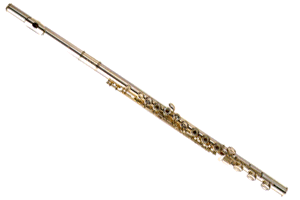Pearson Band
Hello Future Band Members!
Want to make friends, have fun, and learn how to play an instrument? - JOIN BAND!!
Our Band Instrument Petting Zoo is on Saturday January 17th, 2026 from 9AM-2PM at Pearson MS. This is an incredibly fun day where a professional musician will walk you through the basics of making sound on all 11 of the band instruments. No musical experience is needed! Not sure if you want to do band? This event is PERFECT for you so you can try it out with no commitment!
Want to learn more about Band before you attend the event? This page has FAQ's as well as descriptions of all the band instruments and videos of what they look and sound like. You can learn more about the Pearson Band on our Facebook and Instagram! Questions? Contact Mr. Jenson at jensonm@friscoisd.org
Frequently Asked Questions
Do I need to have prior musical experience to be in band?
No! Students will learn the fundamentals of reading music as well as how to play an instrument.
Asthma? Braces? Is it possible?
Absolutely! There are good instrument choices for every student who wants to be in band. We have many successful band students who have braces and/or asthma. Playing a wind instrument can actually be beneficial for those who have asthma as it helps strengthen the lungs.
Is it possible to be in Band, Pre-AP, GT, and other classes?
Yes! Band creates habits of excellence that carry over to other classes. Many of our students take Pre-AP and GT classes as well as band.
Can I be in athletics and band?
In 7th and 8th grade, YES! Athletics are not offered for any 6th grade student. Because of the unique nature of playing a musical instrument, we try to encourage students to begin band in 6th grade and then take other electives along with band in their 7th and 8th grade years. A majority of our 7th and 8th grade students participate in band AND athletics. We also have band students who participate in theater, art, choir, etc. as well as band in the 7th and 8th grade.
Instrument Selection Guide

Flute
The flute is the highest-pitched instrument of the beginning band with a bright, clear sound. It is played by blowing air across an opening and moving fingers to change the pitch.

Oboe
The oboe is similar in appearance to a clarinet, but it is played using a double reed instead of a single reed to produce sound. Soloistic and melodious, the oboe is a unique member of the band and only a few students each year will be selected to play it. Students wanting to play the oboe are highly encouraged to take private lessons.

Bassoon
The bassoon is played with a double reed and is a larger, lower sounding instrument. With its dignified and majestic sound, the bassoon is also a unique member of the band with only a few special students selected to play it each year. Students wanting to learn the bassoon are highly encouraged to take private lessons.
Clarinet
The clarinet uses a single reed and a mouthpiece to produce its sound. With an extensive range, the rich and lustrous sound of the clarinet is very popular choice for band students.


Saxophone
Although it gives the impression of being a brass instrument, the saxophone belongs to the woodwind family and produces its smooth sound with the help of a single reed. All beginners start on the alto sax, with some students getting the opportunity to move to the deeper tenor or baritone saxes at the end of their first year.

Trumpet
The trumpet is the highest member of the brass family and produces a bright, clear sound. It is played by buzzing into a small mouthpiece and has three valves.

French Horn
The French horn is also a brass instrument that is played by the use of a small mouthpiece similar to the trumpet. Students with a good musical ear, such as Honor Choir students, should consider playing the French horn.

Trombone
Like the French horn, trombone players need a good musical ear. Like the other brass instruments, sound is produced by buzzing into a mouthpiece; however, the trombone has a single long slide instead of valves. The slide is not marked with notches, so players must rely on their ears for correct positioning.

Euphonium
The euphonium (you-PHONE-knee-yum) is sometimes known as the baritone. It is a member of the brass family and looks like a small version of a tuba. Its sound is similar to that of a trombone, but it uses valves like a trumpet instead of a slide (like trombone).
Percussion
Percussionists learn to play a variety of instruments other than drums including mallet instruments, such as the xylophone and marimba, and accessory instruments, like the triangle and tambourine. While not a requirement, piano experience is particularly helpful to a percussionist as it will help with learning mallet instruments.

Tuba
The tuba is the most important instrument in the band. Being the lowest of all the wind instrument, it provides the foundation for the entire band sound. Beginners start on a 3/4 size tuba that is easy to handle.
